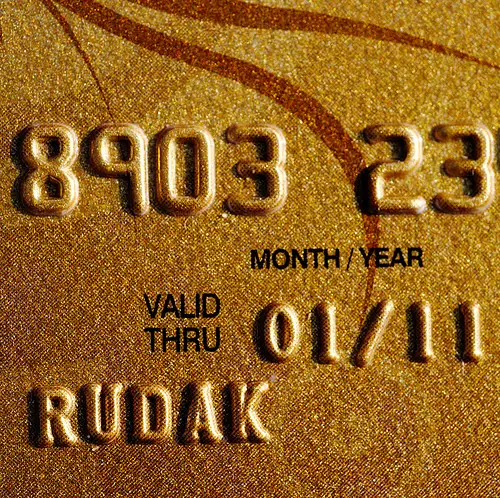 You might think that credit cards for people with excellent credit are universally the best products available, and that the quality of a credit card naturally rises in accordance with the credit level required to get it. And you might believe that high fees and lacking rewards simply come with the territory of having bad credit, and that this is a natural trade off. You might also assume that people with excellent credit would be savvy enough to avoid risky credit card offerings. But, we all know what happens when you make assumptions, and credit card companies offering No Preset Spending Limit (NPSL) credit cards have long been making both you and me look like real donkeys.
You might think that credit cards for people with excellent credit are universally the best products available, and that the quality of a credit card naturally rises in accordance with the credit level required to get it. And you might believe that high fees and lacking rewards simply come with the territory of having bad credit, and that this is a natural trade off. You might also assume that people with excellent credit would be savvy enough to avoid risky credit card offerings. But, we all know what happens when you make assumptions, and credit card companies offering No Preset Spending Limit (NPSL) credit cards have long been making both you and me look like real donkeys.
Don’t Be Fooled: NPSL Cards Have Spending Limits
All joking aside, why do you think that the Visa Signature credit card, the World MasterCard credit card, and the charge cards offered by Chase and American Express are some of the most popular credit cards for people with excellent credit? It’s partially because they offer lucrative rewards and partially because they are all NPSL cards, which many people believe allow unlimited spending. This is false allure, however, as each and every NPSL card has an actual spending limit.
So, if that’s indeed the case, why do people think otherwise? Well, probably because issuers make a point not to release information about their cards’ limits to either their customers or the major credit bureaus in order to leave the lucrative myth of limitless NPSL card spending undisturbed.
Not only does the failure to provide such important information deceive consumers and preserve this myth, but it also severely complicates NPSL card holders’ use of credit. If you have an NPSL card, you never know how much credit you have at your disposal and are therefore at great risk of having your card get declined unexpectedly while making a big purchase. Additionally, your credit score might incur damage, even if you use your NPSL card responsibly.
How NPSL Cards Can Damage Your Credit Score
Credit card issuers report a variety of information about the use of their products to the credit bureaus. This information is then used by lenders and credit scoring agencies to evaluate how responsibly consumers use their credit. It is thus quite significant, and should it be misleading, your credit score will be as well.
According to a troubling study on NPSL credit cards done by CardHub, credit card issuers either report proxy limits for their cards or simply refrain from reporting credit limits at all. Such practices often result in consumers appearing to have used more of their available credit than they actually have. Given the importance of available credit (both overall and for each of your cards individually) to your FICO score, such practices could damage your credit standing.
The study also found that there is no uniformity in how credit card companies report their NPSL cards and that three of the top ten issuers — Chase, HSBC and US Bank — refuse to be open about the methods they use. Considering that each method of reporting affects your credit differently, the credit score damage caused by NPSL cards might be both unpredictable and impossible to counteract.
NPSL cards are therefore inherently deceptive, risky-to-use products that do not warrant the popularity that they have garnered. These credit cards are notable only for a myth and provide not unlimited spending but uncertainty and the potential for credit score damage. As a result, consumers with excellent credit should eschew their use in favor of rewards credit cards. After all, the benefits of such spending vehicles are actually more than mere rumors.
***
About the Author: Odysseas Papadimitriou is the founder of CardHub.
Photo Credit: Olgierd Pstrykotwórca

Well explained and really helpful to many. I find it amazing how some credit cards companies manage to make sure their clients finish up with debts. The better your credit, the higher the risk they offer you. Sometimes it is easy to cross the line…
Thanks for the information. Checking out CardHub.com now!
CardHub is now known as WalletHub.
Of course they want you to have higher utilization. Then when you have been forced to a lower score and higher interest rate they hope you do not pay the balance in full.